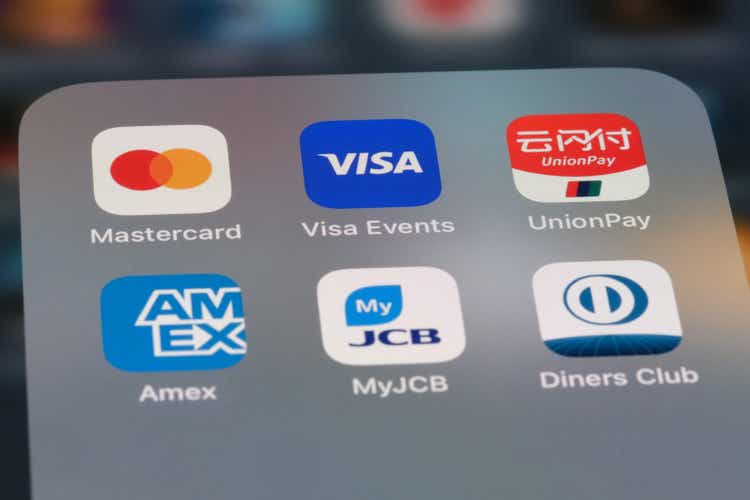
Robert Way
The percentage of consumer spending that Visa (NYSE:V) and Mastercard (NYSE:MA) have been capturing has been trending down for several quarters as the U.S. cash-to-card opportunity approaches saturation, according to a recent analyst note.
“We believe share of personal consumption expenditure growth is a key measuring stick in evaluating V & MA’s growth runway in the U.S.,” Mizuho analyst Dan Dolev wrote in a note last week.
On Thursday, the Commerce Department reported that personal consumer expenditures rose 0.3%, or by $105.8B, in September, slightly higher than the 0.2% increase in August and in line with economists’ consensus estimate.
Cash-to-card conversion has driven ~45% of Visa’s (NYSE:V) revenue growth, he noted. And though Mastercard (NYSE:MA) doesn’t disclose that metric, he assumes that it’s similar to Visa’s.
Historically, Visa (V) has captured about 61% of incremental U.S. PCE, measured as the change in Visa’s U.S. payment volume as a function of the change in PCE. From the third quarter of calendar year 2019 to the Q3 of calendar 2024, Visa’s share of five-year incremental consumer spending growth was 47%, down slightly from Q2 and compared with an average of 52% in CY23.
Mastercard (MA) has historically captured ~22% of incremental consumer spending in the U.S. From Q3 209 through Q3 2024, its share of five-year consumer spending growth was 20%, down slightly from the previous quarter and an average of 22% in 2023.
One advantage for Mastercard (MA) is its share gains in U.S. debit cards, with the spread between the two card networks widened in MA’s favor by ~20 basis points, Dolev pointed out after Mastercard released its Q3 results on Thursday. U.S. debit growth widened to +8% at Mastercard vs. +5% at Visa.
“Even more importantly, MA saw a +400bps M/M acceleration in switched US volume growth in October compared to just est. +200bps at V,” he said.
Meanwhile, cross-border growth was similar for the two companies. Mastercard’s cross-border growth increased 200bps in October vs. September after a stable Q3, Dolev added.
After analyzing the PCE implications for the two card payment networks, Dolev raised his price targets for MA to $532 from $496 and for V to $292 from $279.
Mizuho has an Outperform rating on Mastercard and a Neutral rating on Visa. The SA Quant rating has a Hold rating on both Visa and Mastercard.
Among payment and data services stocks, the SA Quant system gives PayPal (PYPL) its highest rating.
